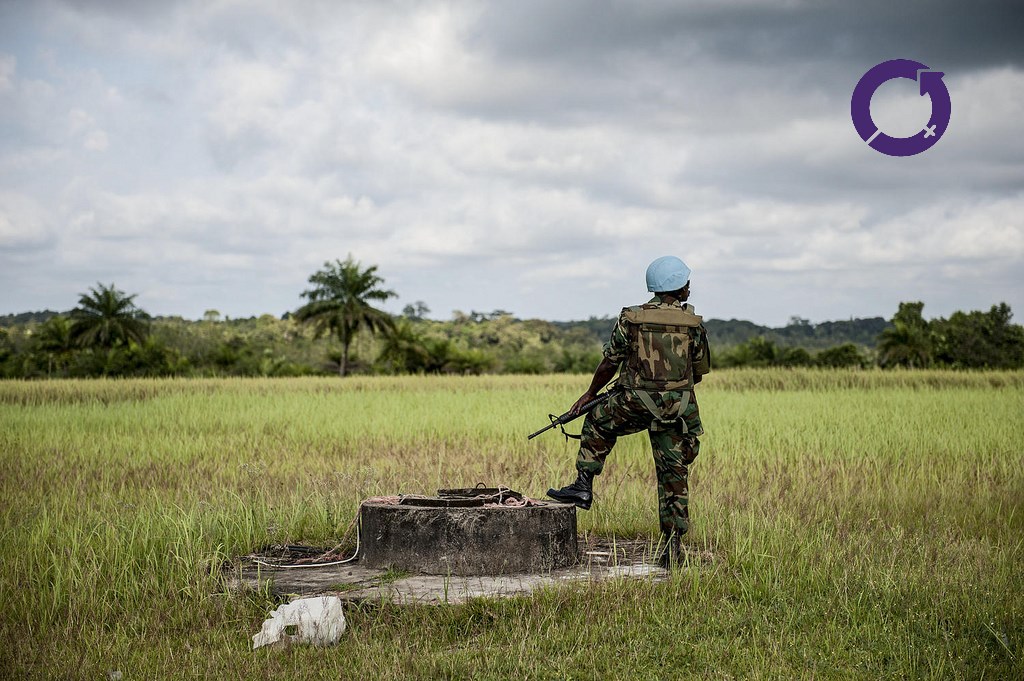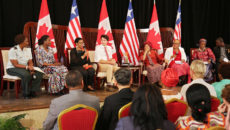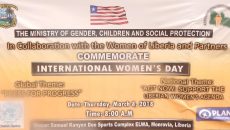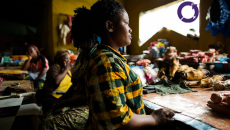A recent article in the Washington Post about UN “peacekeeper babies†caught my attention. “Peacekeeper babies†is a polite phrase for the children of rape brought on by UN peacekeepers against young girls in the Central African Republic. While this story unfolds in the Central African Republic, stories from my childhood in Liberia continue to haunt me and shape my life.
Like many of you, I grew up in Liberia during a time of civil war. Having witnessed unspeakable acts against my loved ones, my neighbors, and fellow Liberians, it’s amazing how I’ve managed to stay sane over the years. Though I now live in a comfortable home in a nice neighborhood where children live beautiful and carefree lives, it still feels like yesterday.
What’s horrifying about the Central African Republic’s current crisis isn’t so much that the rapists are the same men sent in to protect the people and ensure peace — granted, it IS horrifying — but rather it’s more of the same old, same old.
As a kid who grew up in the midst of the Liberian civil war, I’m no stranger to rape. Rape was commonly committed by child soldiers — mere boys — spurred on by older NPFL soldiers, and young girls were often their victims of choice. The civil war is long past, but, unfortunately, the culture of rape is alive and well in Liberia. It weighs heavy on my conscience as I’m sure it does for many Liberians.
According to a 2014 report by Overseas Development Institute (ODI), 19 to 26 percent of women and girls surveyed in 2013 had reported having been raped by a stranger. Many rape victims are shamed or shunned by their families, and some are even forced to marry their rapists. For married women in Liberia, the rate of sexual assault by their own husbands is 70 to 73 percent.
In all, the World Health Organization estimates that 77 percent of all women and girls in Liberia have been the victim of sexual violence. Not only are these numbers exceedingly high, but rape is also believed to be underreported in Liberia. The ODI report suggests that rape remains prevalent in Liberia because of “hyper-masculinity,†the normalization of rape, and a failure to prosecute rapists.
It’s not just older soldiers and their boy-soldier puppets, strangers, and husbands committing these crimes in Liberia; entitled government officials have been accused of rape and sexual exploitation of young girls.
And it’s not just rape that destroyed the future of my generation in Liberia.
In America, the older generation, from the World War II era, is often referred to as “the greatest generation.†This generation came together and left their country a better place for subsequent generations.
In Liberia, our older generation is largely to blame for the dismal state of affairs throughout the country. Those who didn’t commit rape are often guilty of failing to report it, failing to prosecute it, or failing to provide emotional support to the rape victims. Liberia is a nation that has turned a blind eye to crimes against our children, even in times of supposed peace. Liberia is a nation where the older generation saw nothing wrong in compromising their personal values and the greater good of the nation in their quest for power and personal wealth.
Today, our country is one of the poorest in the world. Like the Central African Republic, we have a heavy UN peacekeeper presence. We probably also have peacekeeper babies. Less than half of our population can read, and only a third of all girls and women can read. War, HIV/AIDS, Ebola, and other infectious diseases have decimated Liberia’s population. We have vast resources, but squander them and rely heavily on foreign aid. Corruption runs rampant, further hindering progress.
The silver lining in this story is this: Liberia’s population is very young. According to CIA World Factbook, just 4.3 percent are ages 55-64 and another 3.13 percent aged 65 or older. 31.51 percent are 25 to 54 years old, 18.3 percent are 15 to 24 years old, and 42.75 percent are younger than 14 years old.
My generation’s future may have been compromised by our elders, but history does not have to repeat itself. I believe in moving on and moving forward. I believe in the power of forgiveness, for that is what has kept me sane after years of bloodshed and greed in my native land.
We all have our horror stories from the war, so I won’t go into the details of my personal story other than to say I don’t blame the boy soldiers, but rather those who use them for their personal greed. I blame those from the older generation who pursued power and personal wealth without concern for others. I am in the process of forgiving them. But I will not forget.
Moving forward, my generation has the opportunity to help improve the future for the younger generation. Before we can do that, we must protect our youth.
We can start by:
- Acknowledging the conscience of our nation so that we can make amends with our future.
- Immediately enforcing the age of consent to protect our girls from predators.
- Defining rape for what it is: a violent, unwanted crime against women and children.
- Supporting and helping rape victims, not shaming or shunning them — and not forcing them to marry their rapists.
- Prosecuting rape and spousal sexual assault.
Next, we must educate and empower our youth. They are Liberia’s predominant demographic, and they are Liberia’s future. Youth can and should use their strength to dictate the path of Liberia.
They can’t do it alone, but they can do it, of that I am certain. We can help by:
- Ending the corruption that is siphoning millions of dollars from education and healthcare
- Offering economic empowerment opportunities for our girls
- Educating our youth
- Being good role models and mentors for our youth
- Ensuring access to technology
Most important of all, we need to break free of the “same old, same old†mentality that grips much of Africa. We must all hold ourselves and others to a higher standard. Let’s forgive the past, move on, and set a new baseline of common decency and enforce existing laws. If we can do this, we can work with our youth to build a strong Liberia based on innovation, education, and youth empowerment.
Featured photo by UN Photo/Staton Winter



